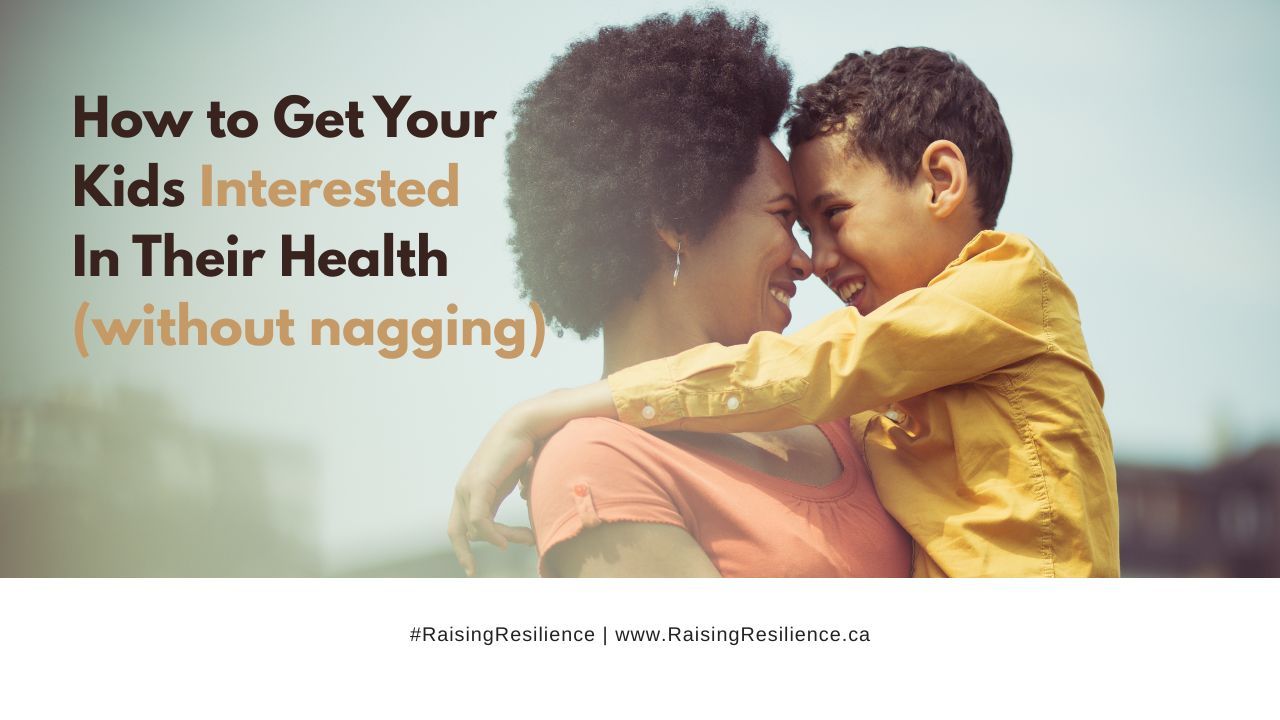How to Get Your Kids Interested in Their Health (Without Nagging)

If you’ve ever felt like keeping your kids healthy falls entirely on your shoulders, you’re not alone. Most parents I talk to know so much about nutrition - often more than their partners or even their kids’ grandparents.
But a lot of parents ask me, ‘How do I get my kids to care about their health?’ or ‘How can I help my child listen to their body?’ When it all falls on your shoulders and you feel like the food police, it's easy to give up and burn out.
The good news is, it’s possible to get kids interested, and it doesn’t require nagging. Here's how...
1. Start with what matters to them.
Kids rarely change because we tell them to. They change when something matters to them.
For some, it’s the science - they love learning about “good bugs” and “bad bugs” in their bellies, how their muscles grow, how their brains work.
Others want to feel better (sleep better, focus better, have fewer tummy aches, fewer meltdowns, less anxiety).
Some care about looking or performing better in school or sport (clearer skin, stronger bodies, more stamina in sports, or better focus for school).
Some just want to be like you. They see you taking supplements, they want their own.
The key is to connect their health to their goals. You might try phrases like:
“You know how you want to be the fastest at hockey? That starts with how you eat.”
“Your tummy bugs are like your teammates - they help your brain stay calm and focused.”
“Want to be able to focus better for your exam? Sleep is crucial for that so let's try to dial that in.”
2. Keep language simple and repeatable.
I come back to this strategy over and over again when I coach parents: more often than not, the fewer words the better when talking to kids.
You don’t need to give a lecture on microbiology or sleep architecture to get them interested. Your kids will probably only hear a sentence or two anyhow.
Instead, use soundbites that stick, and repeat them as frequently as you can. Some ideas:
- “Your gut and brain talk all day long.”
- “Sleep is how your body repairs overnight.”
- “Colorful foods feed your gut bugs.”
- “Your poop tells us how happy your gut bugs are.”
- “Screens right before bed confuse your brain.”
It might sound silly, but repetition works. Kids roll their eyes, and then one day, you overhear them explaining it to someone else.
3. Model curiosity
Most kids don't like hearing "no" or being corrected all the time. So instead of trying to correct them, you might try curiosity-focused phrases like:
“How does your belly feel after that?”
“Do you notice if your brain feels fuzzier when you stay up late?”
“What do you think your body is texting you right now - is it tired? wired? or calm?”
They may not have an answer for you.
They may shrug.
They may literally lie.
But that's ok. Your job is to ask the question and plant the seed. You’re teaching your child to listen to their body: gut, brain, energy, mood, sleep. That’s the real skill.
The Bottom Line: Helping Kids Care About Their Health
How do I get my kids to care about their health?
Start with what they care about - feeling good, performing better, or understanding how their body works. Connect health habits to their personal goals.
How can I help my child listen to their body?
Ask open-ended questions like “How does your belly feel after that?” or “Do you notice if your brain feels tired?” Curiosity builds awareness.
What’s the best way to teach kids about nutrition and sleep?
Keep it simple, repeat the same soundbites often, and model the habits you want them to build.
Let health evolve with your kids. You can’t force curiosity, but you can plant seeds. Keep the conversation alive, age-appropriate, and anchored in connection. One day, when they’re older and making choices on their own, you'll find those seeds have grown into intuition - the kind that says, “I think my body needs real food and a good sleep tonight.”
That’s a HUGE parenting win. If your child leaves home knowing that what they consume through their mouth, nose, eyes, and ears shapes how they feel, think, and cope, you’ve given them a powerful foundation for health.






